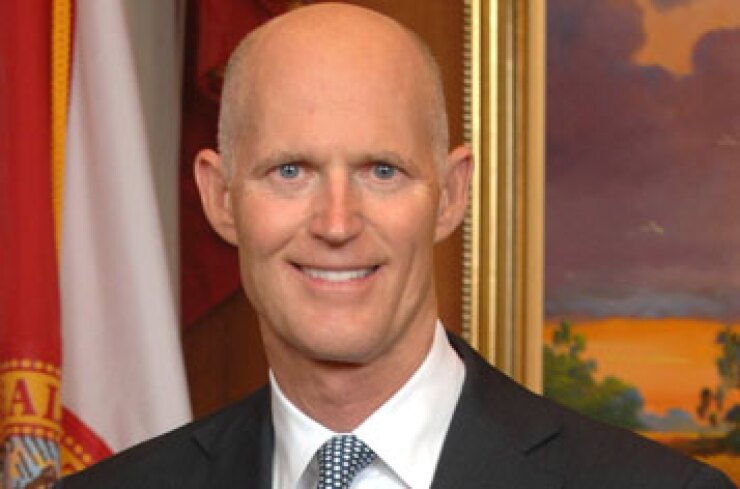
BRADENTON, Fla. - The GOP-led Florida Legislature plans to complete a 20-day special session Friday with a final vote on a budget, in time to avoid a shutdown of state government on July 1.
Conferees rushed to complete work on the 2016 spending plan near midnight Monday releasing hundreds of pages of documents, including details on $300 million for individual projects sought by lawmakers.
On Tuesday, legislative staff was still preparing final documents and had not released the total budget, though it could be near $80 billion.
Legislators, by law, will have 72 hours to review the budget before voting on Friday.
The final budget does not include funding to expand Medicaid, a program sought by Senate leadership that created an impasse with the House and led to the overtime session that began June 1.
Last week, after dropping the expansion plan, lawmakers hammered out how much of the general fund would be allocated toward hospitals for treating the poor due to a reduction in federal money for a program called the Low Income Pool.
On Monday, lawmakers approved House Bill 33-A, a major component of the budget that authorizes $429 million in broad-based tax breaks, including a permanent 1.73% reduction in the Communications Services Tax on items such as phone and television services.
While Gov. Rick Scott originally proposed $673 million in tax reductions, and a larger decrease in the communications tax, he signed the bill on Tuesday and thanked both chambers for their work on the legislation.
"Giving Floridians back more of the money they earn in tax cuts is the best thing we can do to keep Florida's economy growing," Scott said. "Cutting Florida's cell phone and TV tax is particularly important because it will save money for Florida families who pay a cell phone, satellite or cable TV bill."
Scott, a Republican, did not indicate if he would approve the budget for the fiscal year beginning July 1.
He has line-item veto power and has used it heavily in lean years particularly on hometown project funding requested by individual legislators.
One sticking point that could pop up long after the budget goes into effect is the Legislature's allocation of environmental funding based on Amendment 1 approved last November.
An overwhelming majority of voter statewide approved the amendment dedicating 33% of Florida's documentary stamp tax on real estate for acquisition and management of land to protect wetlands, fish and wildlife habitat, drinking water, beaches, shores, and the Everglades.
The provision is expected to raise more than $700 million for conservation and preservation this year, but lawmakers allocated much of the funding to programs that had been supported elsewhere in the budget in previous years and carved out only $17.4 million for land purchases.
A House plan to bond a greater amount for land acquisition this year was rejected by the Senate and the cash amount set aside for that purpose infuriated some supporters of Amendment 1 who said they might consider filing a lawsuit to enforce the new law.
"We will be looking at all our options to hold the Florida Legislature accountable to Amendment 1 and voters who demanded more funding for conservation," Aliki Moncrief, director of Florida's Water and Land Legacy, said Tuesday.
"There's no way to sugarcoat this — the Florida Legislature is ignoring voter intent and refusing to accept its responsibility to protect and restore Florida's environment," said Moncrief, whose organization spearheaded Amendment 1.





